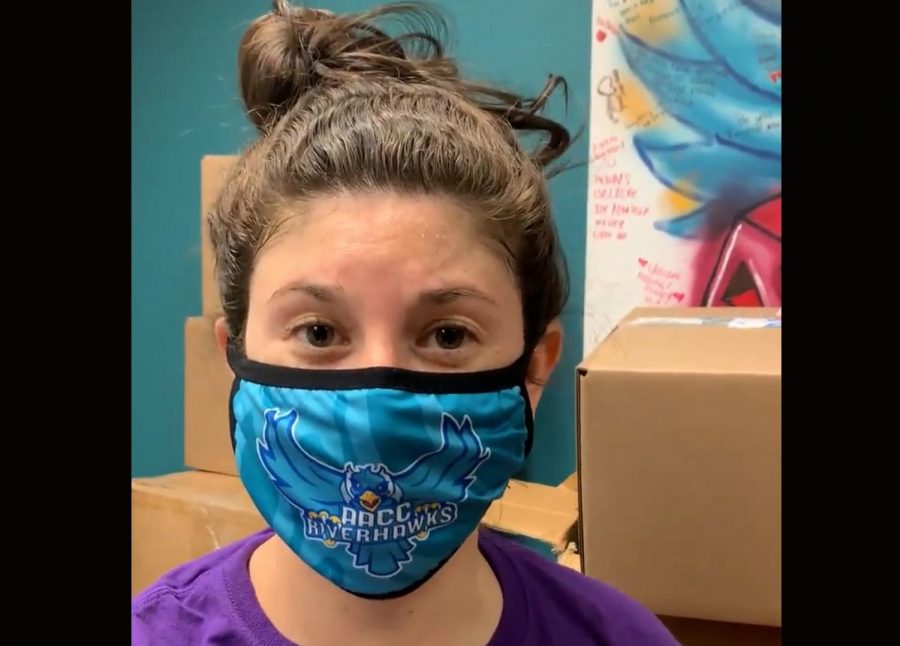Student requests for food, basic help increase by 300% since March
November 24, 2020
HelpLink, AACC’s crisis management service, has seen a sharp uptick in requests for assistance since the start of the COVID-19 pandemic.
Since the college closed in March, HelpLink has supplied 246 students with textbooks, food, medical assistance, transportation, computer equipment and Wi-Fi in their homes, according to Caitlin Silver, the basic needs coordinator for HelpLink.
“Starting around March or April, we were seeing a 300% increase in the number of students applying” for aid,” Silver said. “Where we might normally see six or seven in a week, we were seeing 20-some students. We saw a huge explosion.”
Silver said the kind of help needed changed with the pandemic as well, with more students having difficulty getting a reliable internet connection in their homes to complete classes. This shift led the college to reconsider HelpLink policies to include Wi-Fi assistance as a free service.
“We had to reconsider what a basic need was,” Silver said. “In the past, we actually did not offer Wi-Fi assistance because students could utilize on-campus W-Fi for free. But since that’s not an option anymore, we had to reassess how we can provide aid to keep students enrolled. Wi-Fi bills became a huge priority for us, where it didn’t even exist as a need before.”
HelpLink is a grant program, run through the Office of Student Engagement. The program specializes in confidential, short-term emergency assistance for credit or non-credit students who find themselves in need so that they can continue their education.
Students seeking aid can apply online through the AACC website. The student must be in good academic standing, willing to attend a workshop and demonstrate financial need. Faculty members can also initiate a HelpLink request on behalf of a student who is reluctant to ask for help.
Funding for the HelpLink program comes mostly from donations, and partly from student fees.
“We rely very heavily on Good Samaritans who want to support our students and are able to provide donations that then immediately turn into student support,” Silver said. “We use every bit of funding strictly for our students.”
HelpLink also runs a food pantry, which has seen a pandemic-induced increase in visitors as well.
“Normally the pantry gets traffic every day, but today alone, I sent out almost 60 boxes of food for students and their families,” said Silver. “It’s a lot, and with the holidays, we anticipate that will continue to grow.”
Joseph Hayden, a second-year communications student, said he appreciates HelpLink as a service but wishes more long-term solutions to student issues were also available.
“I’d still prefer a few days of help to no reprieve at all, but I would be more interested in seeing if our school could wire up a more permanent situation,” Hayden said.
Icram Doku, a second-year computer science student, said she feels more secure as a student with the knowledge that she can rely on HelpLink.
“Nothing is certain, you know?” Doku said. “At some point, something bad might happen. It could be anything. And if you have that kind of support, then your academic life is less likely to be affected by that. I think it’s a great cushion.”
Silver said “no issue is too small” for HelpLink, and encouraged students who might be embarrassed to ask for aid not to allow pride or social stigma to keep them from getting their education.
“Our program exists to make school easier,” Silver said. “I hope that students at least reach out and ask questions if they’re not sure what kind of help they need, or where to get it. There can be stigma around financial insecurity. But we’re living through a very crazy time between the pandemic and the election stress, and folks losing their jobs at a really unprecedented rate. Now’s the time to seek out these supports that are designed to keep students in school.”












